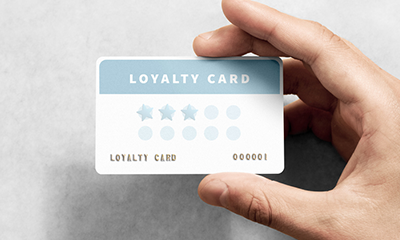
cxLoyalty v Maritz Holdings
cxLoyalty, Inc. v. Maritz Holdings Inc.
No. 2019-1567 Nos. 2020-1307, 2020-1309Fed. Cir. February 8, 2021 Before Chief Judge Prost, with Circuit Judges Lourie and Hughes.
cxLoyalty petitioned for a covered business method (“CBM”) review of claims of U.S. Patent No. 7,134,087. The Board instituted CBM review and concluded that the original claims 1–15 are ineligible for patenting under 35 U.S.C. § 101 but that proposed substitute claims 16–23 are patent eligible. cxLoyalty appealed the Board’s ruling as to the substitute claims. Maritz cross-appealed the Board’s determination that the patent is eligible for CBM review and the ruling as to the original claims. The Court held that it did have authority to entertain the challenge to the CBM eligibility of the patent and that both the original and substitute claims are directed to patent-ineligible subject matter under § 101.
The patent presents a system and method that permits a customer of a loyalty program to redeem points for rewards without the need for human intervention. A graphical user interface (“GUI”) provides the interface for a customer to communicate with a web-based vendor system such as an airline-reservation system. An application programming interface (“API”) interfaces with the GUI and the vendor system to facilitate information transfer between them.
The Court applied the two step Alice/Mayo framework for evaluating patent eligibility. The Court agreed with the Board that the original claims were directed to an abstract idea, stating that “[t]he system of claim 1 facilitates such a transaction via transfers of information between the participant, vendor system, and the intermediary (the GUI and API). Humans have long intermediated these very transactions by collecting and relaying the very same information.”
The claims also fail step two of the Alice/Mayo framework according to Chief Judge Prost’s opinion. The claims “recite techniques that are, whether considered individually or as an ordered combination, well-understood, routine, and conventional. The claims apply the abstract idea on a computer by replacing the human intermediary with a GUI and API…claim 1 merely recites generic and conventional computer components (i.e., ‘processor,’ ‘GUI,’ and ‘API’) and functionality for carrying out the abstract idea……communication of information by GUIs and APIs was well-known in the prior art.”
The Court went on to state that the claims recite “conventional techniques; the claims are not directed to a technological solution to a technological problem.” The Court emphasized that the claimed invention does not improve the performance of a computer system or the use of computers as a tool. The Court had the same view of the proposed substitute claims. The Court stated that “Maritz does not contend that the claimed invention improves the use of computers as a tool by reciting a new way for computers to conduct format conversion.” The Court found that the substitute claims do not “claim a patent-eligible technological solution to a technological problem.”
In a footnote, the Court noted that the United States Patent and Trademark Office’s 2019 Revised Patent Subject Matter Eligibility Guidance, relied on by the Board, “is not, itself, the law of patent eligibility, does not carry the force of law, and is not binding on our patent eligibility analysis.” In re Rudy, 956 F.3d 1379, 1382 (Fed. Cir. 2020).
The Court stated that a challenge to the threshold determination of eligibility for CBM review is non-appealable under 35 U.S.C. § 324(e). SIPCO, LLC v. Emerson Electric Co, 980 F.3d 865, 867 (Fed. Cir. 2020).
(Reviewers Comment: Couldn’t this case have been decided under 102/103? Why do the Courts and the Board continue to grapple with abstract ideas, the “precise contours” of which have not been clearly defined? The over-application of §101 is contrary to decades of jurisprudence that set forth a liberal view of patent eligibility under §101.)
Read more: Federal Bar member attorneys may access the full case summary by registered patent attorney B.C. “Bill” Killough in the February 2021 issue of Federal Circuit Case Digest.
 B.C. Killough is a registered patent attorney based in Charleston, SC. On behalf of his clients, Bill has obtained more than 300 United States patents, participated in prosecuting more than 100 foreign patent applications and he has filed more than 1000 trademark applications with the US Patent and Trademark Offices.
B.C. Killough is a registered patent attorney based in Charleston, SC. On behalf of his clients, Bill has obtained more than 300 United States patents, participated in prosecuting more than 100 foreign patent applications and he has filed more than 1000 trademark applications with the US Patent and Trademark Offices.
Additionally, you may read the full opinion here.